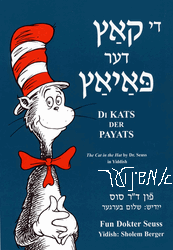Shmuel who?
Feldhiem has just released a comic style children's book on Rabbanu Shmuel ha-Nagid. And I'm thrilled ,you see several years ago after Rabbi Beryl Wein had left Sharrie Torah in less then capable hands, he returned as a quest speaker and related to the yeshiva the great story of RSH.
Before the year 1000 , records of Jewish poetry are primarily religious. After that date, secular Jewish poetry began to flourish in Spain. This was the time of the Arab conquest of North Africa and Spain, and the Jews spoke Arabic , while continuing to use Hebrew in their services. Arabic was used in Jewish philosophy. As translators, Jews brought the philosophies of the classical world that had been preserved in Arab cultural centers back into Europe. As poets, they brought the techniques of Arab poetry into the language of Hebrew.
Rabbanu Shmuel ha-Nagid (Shmuel ha-Levi ben Joseph ibn Nagrela, 993-1056 CE) was born in Cordova. He fled to Malaga, in the Berber province of Granada when the Berbers attacked in 1013 .He advanced from a tax collector, to secretary, to assistant vizier, and was appointed vizier in 1027.His responsibilities as vizier involved leading the army of Granada for eighteen years.He was at the same time a poet, rabbi, statesman, and general, and distinguished in each one. It was his high rank and success in war that led to calling him Nagid (Prince). His poetry shows him a man who appreciated wine and held writing in high regard. He meditates on the shortness life and to birth and death. His experience in war is in his poetry, he laments the loss of life and the suffering.He wrote Hilchos ha'Nagid on jewish law and died leading a military campaign in 1055.
Man Runs towards the Grave
Man runs towards the grave,
And rivers hasten to the great deep
The end of all living is their death,
And the palace in time becomes a heap.
Nothing is further than the day gone by,
And nothing nearer than the day to come,
And both are far, far away
From the man hidden in the heart of the tomb
To me chagrin all the new rabbiem had never heard of RSH, so now is their chance, I hope the English is not too challenging for them or that the issur shtar hedyotos won’t keep them from reading it on Shabus.

-amshinover:if you have nothing nice to say, say it here
Before the year 1000 , records of Jewish poetry are primarily religious. After that date, secular Jewish poetry began to flourish in Spain. This was the time of the Arab conquest of North Africa and Spain, and the Jews spoke Arabic , while continuing to use Hebrew in their services. Arabic was used in Jewish philosophy. As translators, Jews brought the philosophies of the classical world that had been preserved in Arab cultural centers back into Europe. As poets, they brought the techniques of Arab poetry into the language of Hebrew.
Rabbanu Shmuel ha-Nagid (Shmuel ha-Levi ben Joseph ibn Nagrela, 993-1056 CE) was born in Cordova. He fled to Malaga, in the Berber province of Granada when the Berbers attacked in 1013 .He advanced from a tax collector, to secretary, to assistant vizier, and was appointed vizier in 1027.His responsibilities as vizier involved leading the army of Granada for eighteen years.He was at the same time a poet, rabbi, statesman, and general, and distinguished in each one. It was his high rank and success in war that led to calling him Nagid (Prince). His poetry shows him a man who appreciated wine and held writing in high regard. He meditates on the shortness life and to birth and death. His experience in war is in his poetry, he laments the loss of life and the suffering.He wrote Hilchos ha'Nagid on jewish law and died leading a military campaign in 1055.
Man Runs towards the Grave
Man runs towards the grave,
And rivers hasten to the great deep
The end of all living is their death,
And the palace in time becomes a heap.
Nothing is further than the day gone by,
And nothing nearer than the day to come,
And both are far, far away
From the man hidden in the heart of the tomb
To me chagrin all the new rabbiem had never heard of RSH, so now is their chance, I hope the English is not too challenging for them or that the issur shtar hedyotos won’t keep them from reading it on Shabus.

-amshinover:if you have nothing nice to say, say it here


5 Comments:
At 9/08/2005 6:34 PM, Anonymous said…
Anonymous said…
"To me chagrin all the new rabbiem had never heard of RSH"
vey iz mir. The new Rebbeim.
Don't get me started about that place.
I must know who you are.
At 9/08/2005 7:27 PM, Anonymous said…
Anonymous said…
I remember reading that teh Ramchal was a plywright. And that he wrote secular plays as a means of livelyhood.
do you know if that is true, becaause I have been unable to confirm this.
At 9/09/2005 1:13 PM, Steg (dos iz nit der šteg) said…
Steg (dos iz nit der šteg) said…
Shemu’el Hanagid ibn Neghrela was killed by Arabs? i don't remember that... i know his son, Yehoseif, was killed in a politically-motivated anti-Jewish pogrom about 10 years after succeeding his father as Nagid, though.
Shemu’el Hanagid was a genius!
First war resembles / a colorful mouth we
all want to flirt with / and believe —
Later it's more / a repulsive old whore
whose callers are bitter / and grieve
(can't find the Hebrew original yet)
At 9/12/2005 12:25 PM, Anonymous said…
Anonymous said…
Where are you finding his poetry? I'd like to read more. Thanks for any pointers--the more the merrier.
At 9/13/2005 12:13 PM, AMSHINOVER said…
AMSHINOVER said…
http://www.poems-and-poetry.com/samuel-ha-nagid/index.html
Post a Comment
<< Home